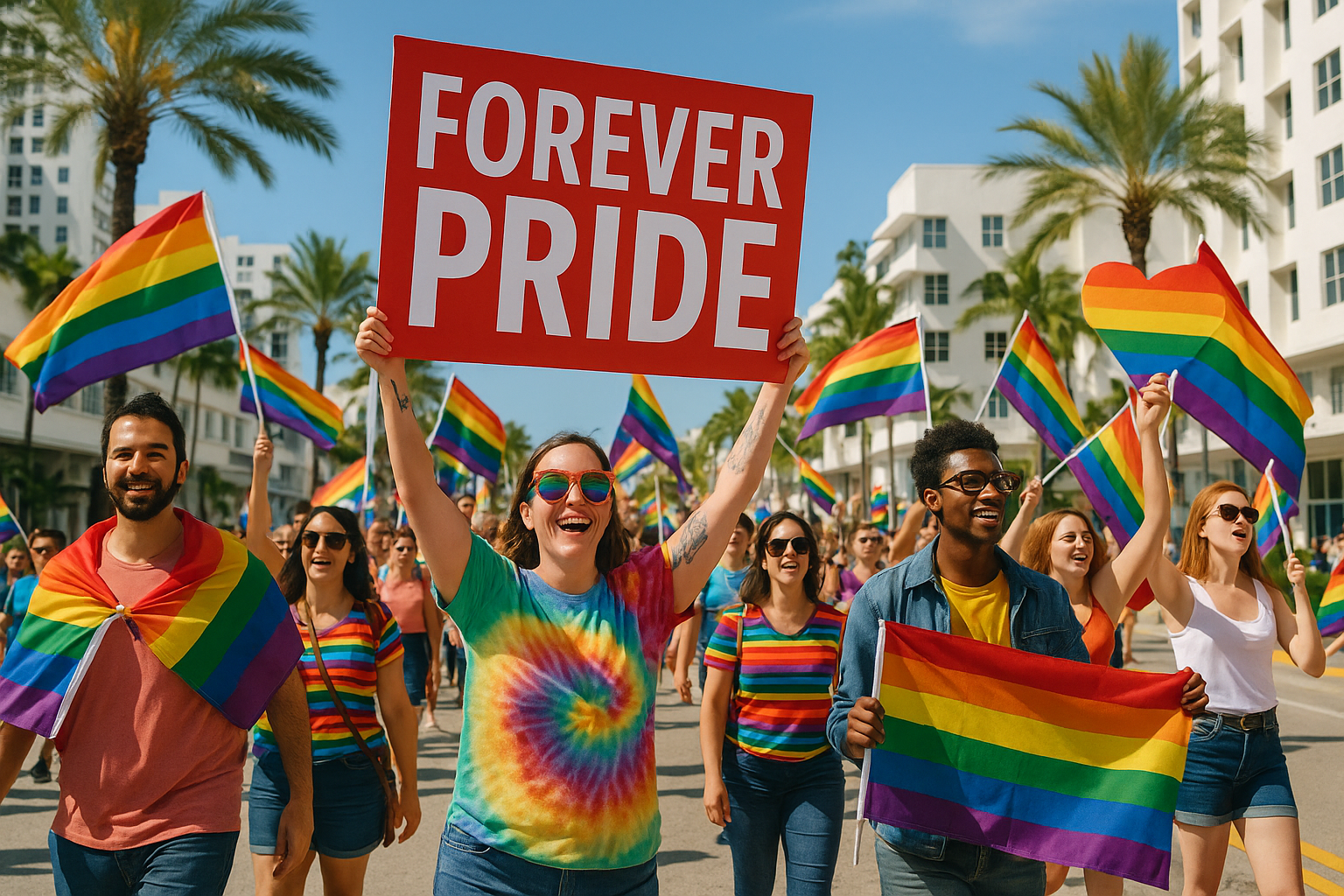
The “Forever Pride March” taking place this Sunday marks a fresh and poignant moment for Miami Beach, as local residents, activists, and officials converge to make a stand for LGBTQ inclusivity. This march, planned in direct response to the removal of the city’s iconic Pride crosswalk by state authorities, represents a coordinated and determined effort to reclaim public symbolism and affirm the community’s values in the face of political constraints.
Commissioner Alex Fernandez, Miami Beach’s only openly gay official, leads the protest and appeals directly to the spirit of the city, arguing that the Pride crosswalk did not pose any real safety risk and served as a visible emblem of solidarity and acceptance. Organizers, including the Greater Miami LGBT Chamber of Commerce, are amplifying the message through outreach and visibility: participants can collect free “Pride and Progress” flags at the LGBT Visitor Center before joining the march and showing their colors in unity.
The march emerges amid a broader crackdown under the Florida state administration that has targeted public art deemed “politically charged,” raising alarm from civil liberties groups who view the policy as selectively suppressive. The “Forever Pride March” thus becomes emblematic not just of local defiance but of a broader movement insisting that symbols of identity and acceptance be safeguarded in public spaces.
The #ShowYourRainbow campaign, launched by Equality Florida, furthers that sustainable momentum—not just on the streets but in neighborhoods. This grassroots wave invites citizens to display rainbow symbols in their own personal spaces as a peaceful but powerful extension of protest.
The organizers anticipate significant turnout—from longtime activists to younger residents who have grown up embracing inclusion as part of Miami Beach’s identity. While the state claims the crosswalk may violate regulatory guidelines or present safety issues, local leaders argue those concerns pale in comparison to the broader harm of erasing LGBTQ visibility.
The “Forever Pride March” is scheduled to begin at the LGBT Visitor Center at 10 a.m., drawing individuals ready to affirm Miami Beach’s solidarity with its LGBTQ residents. Those participating believe their message is not just for now but for the future of the city: that inclusion isn’t negotiable and that public symbols of progress must remain. The march embodies more than protest—it’s a unifying call for respect, representation, and recognition across Miami Beach’s evolving landscape.